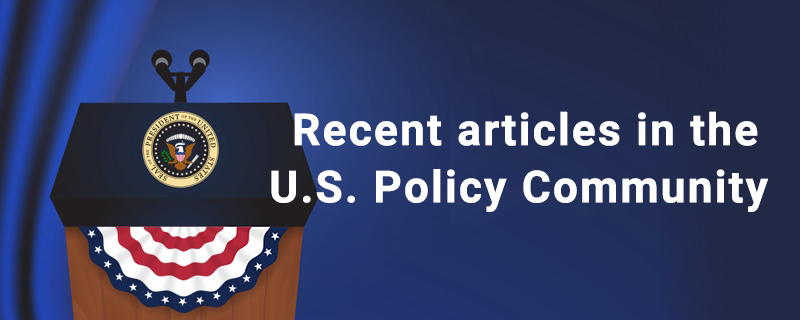Japan-U.S. Program Roundtable Discussion
"U.S. Nuclear Policy and Deterrence Strategy: Russia-Ukraine War and Its Implications for the Indo-Pacific"
On December 8, 2022, the Japan-U.S. Program invited four distinguished experts from Japan and the U.S. to hold a roundtable discussion, "U.S. Nuclear Policy and Deterrence Strategy: Russia-Ukraine War and Its Implications for the Indo-Pacific." From the United States, we welcomed Dr. Brad Roberts, director of the Center for Global Security Research at Lawrence Livermore National Laboratory, who served as deputy assistant secretary of defense for Nuclear and Missile Defense Policy during the Obama administration. We also welcomed Mr. Sugio Takahashi from the National Institute for Defense Studies and Mr. Masashi Murano from the Hudson Institute as discussants. As a co-organizer of the discussion, Prof. Nobumasa Akiyama of Hitotsubashi University took a role of a moderator. The discussion began with an introduction of two books; The End of Nuclear Forgetting: the Era of the Revival of Nuclear Weapons, co-edited by Prof. Akiyama and Mr. Takahashi (Keiso Shobo, 2019 *Japanese) and The Case for U.S. Nuclear Weapons in the 21st Century by Dr. Roberts (Stanford: Stanford University Press, 2015/ Japanese translated version was published from Keiso Shobo in August 2022) , then dive into a deep and insightful discussion on a wide range of issues surrounding the nuclear weapons, including recent American policies and strategies, the impact of war in Ukraine, how to deal with China in the Indo-Pacific, and Japanese view point, as well as arms control. The video of the discussion can be viewed below.
Video
| Recorded on | Thursday, December 8, 2022 (JST) |
|---|---|
| Discussants | Dr. Brad Roberts, Mr. Sugio Takahashi and Mr. Masashi Murano |
| Moderator | Prof. Nobumasa Akiyama Co-organized by the Institute for Global Governance Research, Hitotsubashi University. |
*Disclaimer: The views and opinions expressed in this discussion are those of the speakers and do not represent the views of the Sasakawa Peace Foundation, Hitotsubashi University, or the institutions to which the participants belong.

Brad Roberts
Dr. Brad Roberts is director of the Center for Global Security Research at Lawrence Livermore National Laboratory. His research areas include security and nuclear strategy. Previously, he served as Deputy Assistant Secretary of Defense for Nuclear and Missile Defense Policy (2009-2013). In this role, he served as Policy Director of the Obama administration’s Nuclear Posture Review and Ballistic Missile Defense Review and had lead responsibility for their implementation. Dr. Roberts has a bachelor’s degree in international relations from Stanford University, a MA. from the London School of Economics and Political Science, and a PhD in international relations from Erasmus University.
Recent publication includes:
The Case for U.S. Nuclear Weapons in the 21st Century (Stanford: Stanford University Press, 2015); Stockpile stewardship in an era of renewed competition, Center for Global Security Research Lawrence Livermore National Laboratory, April 2022 (Editor); "Rethinking Mutual Vulnerability in an era of US-China Strategic Competition," in David Santoro, eds., US-China Mutual Vulnerability Perspectives on the Debate, Pacific Forum, Issues & Insights, Vol. 22, SR 2, May 2022.

Sugio Takahashi
Sugio Takahashi is head of the Defense Policy Division of the Policy Studies Department at Japan’s National Institute for Defense Studies (NIDS). His research areas include military strategy and the Japan-U.S. Alliance. Previously, he was a Director of Policy Simulation Office, NIDS from 2016 to 2020 and Deputy Director of the Office of Strategic Planning of Ministry of Defense from 2008 to 2016. Sugio received a MA and BA from the Waseda University and a MA from George Washington University.
Recent publication includes:
"Strategic Stability and the Impact of China's Modernizing Strategic Strike Forces," in James M. Smith and Paul J. Bolt, eds., China's Strategic Arsenal: Worldview, Doctrine, and Systems (Washington, DC: Georgetown University Press, 2021); "Pitfalls in Deterring a Taiwan Strait Conflict: 'Unpreparable War'," National Institute for Public Policy, Issue No.516, March 1, 2022.

Masashi Murano
Masashi Murano is a Japan Chair fellow at Hudson Institute. His research areas include U.S.-Japan defense cooperation and nuclear/conventional deterrence analysis. Previously, he was a fellow at the Okazaki Institute. Masashi received his bachelor’s and master’s degrees from Takushoku University in Tokyo, pursuing undergraduate work in Asia-Pacific studies and graduate work in security studies.
Recent publication includes:
"The Modality of Japan's Long-Range Strike Options," in Jonathan D. Caverley and Peter Dombrowski, Policy Roundtable: The Future of Japanese Security and Defense, Texas National Security Review, October 1, 2020; "Thinking about Deterrence for Japan and Stability in Asia," PHP Research Institute, October 18, 2021 (with Yoko Iwama); "The Impact of New Capabilities on the Regional Deterrence Architecture in North-East Asia," in Stephan Frühling and Andrew O’Neil, eds., Alliances, Nuclear Weapons and Escaltion: Managing Deterrence in the 21st Century (Canberra: ANU Press, 2021).

Nobumasa Akiyama **Moderator
Dr. Nobumasa Akiyama is a Professor at the School of International and Public Policy and the Graduate School of Law at Hitotsubashi University. His research areas include international politics and security. Previously, he served as Minister-Counsellor at the Permanent Mission of Japan to the International Organizations in Vienna and Special Advisor to Ambassador on Nuclear Security from April 2016 to March 2018 when he was on loan to the Ministry of Foreign Affairs of Japan. Dr. Akiyama has a MA. from the Cornell University, and a Ph.D from the Hitotsubashi University.
Recent publication includes:
"AI Nuclear Winter or AI That Saves Humanity? AI and Nuclear Deterrence," in Joachim von Braun, Margaret S. Archer, Gregory M. Reichberg, Marcelo Sánchez-Sorondo., eds., Robotics, AI, and Humanity (Springer, 2021); “Atoms for Alliance Challenges: Japan in the liberal international nuclear order,” in Yoichi Funabashi and G. John Ikenberry, eds., The Crisis of Liberal Internationalism: Japan and the World Order, (Washington, DC: Brookings Institution Press, 2020); and “Japan’s Disarmament Dilemma: Between the Moral Commitment and the Security Reality,” in Gorge P. Schultz and James E. Goodby, eds., The War That Must Never Be Fought (Stanford: the Hoover Institution, 2015).
